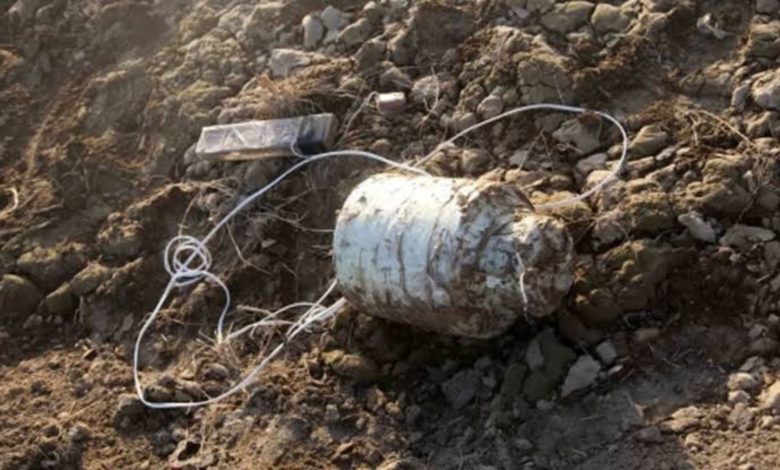Northeast Nigeria: Explosives Kill 230 People, Injure Over 300

At least 230 people were killed and more than 300 injured in 2019 by improvised and unexploded explosive devices in North East Nigeria.
More than 15 incidents have been reported so far in 2020 in the region ravaged by the bloody decade-long Boko Haram insurgency that has since spilled into neighbouring Lake Chad Basin states of Niger, Cameroon and Chad.
The United Nations High Commissioner for Refugees (UNHCR) has called for stronger efforts to mitigate the risks for refugees and Internally Displaced Persons (IDPs) posed by landmines and Improvised Explosive Devices (IEDs) in Africa’s conflict-ridden Sahel and Lake Chad Basin regions.
The UHCR spokesperson, Babar Baloch, during a press briefing at Palais des Nations in Geneva on July 28, said that mines, unexploded ordnance and more frequent use of (IEDs) were resulting in a growing threat to host populations, refugees and IDPs.
Chad and Nigeria top the most affected countries in the lake Chad Basin.
In the most recent incident in a refugee camp in eastern Chad on June 24, four children aged from nine to 12 years were killed with three others seriously injured when they picked up an unexploded device and tried to open it.
The UNHCR spokesperson said urgent efforts were needed to address the dangers and legacy of landmines and to heighten awareness of the horrifying threat from mines, explosive remnants of war and IEDs.
“There is a vital need for governments, humanitarian organizations and parties to conflict to expand mine action work as civilians pay a heavy price,” the spokesperson said.
Landmines and exploded devices also pose a threat to refugees and IDPs fleeing violence and persecution and hinders their right to return to their homes.
“We see mines and unexploded ordnance as critical obstacles to safe and dignified returns, posing lethal dangers for the returning refugees and displaced people for years after the conflict has ended,” Baloch added.
The UN agency further stressed the importance of broad and comprehensive assistance for all victims in line with the United Nations Policy on Mine Victim Assistance.
The United Nations Policy recommends that landmine victim assistance include data collection, medical care, physical and other rehabilitation as well as psycho-social care.
In April, the United Nations Mine Action Service received a donation of 236, 363 dollars from the Government of Japan to support life-saving assistance to civilians and humanitarian actors from landmines of an improvised nature, explosive remnants of war and other improvised explosive devices through mine action in the Northeast.
HumAngle previously reported incidences of unexploded devices in the Northeast.
In June, a boy in an IDPs camp in Jere Local Government Area of Borno State accidentally detonated an explosive device while playing with it.
The explosion killed the boy and injured other people closeby, including members of his family.
Support Our Journalism
There are millions of ordinary people affected by conflict in Africa whose stories are missing in the mainstream media. HumAngle is determined to tell those challenging and under-reported stories, hoping that the people impacted by these conflicts will find the safety and security they deserve.
To ensure that we continue to provide public service coverage, we have a small favour to ask you. We want you to be part of our journalistic endeavour by contributing a token to us.
Your donation will further promote a robust, free, and independent media.
Donate HereStay Closer To The Stories That Matter




